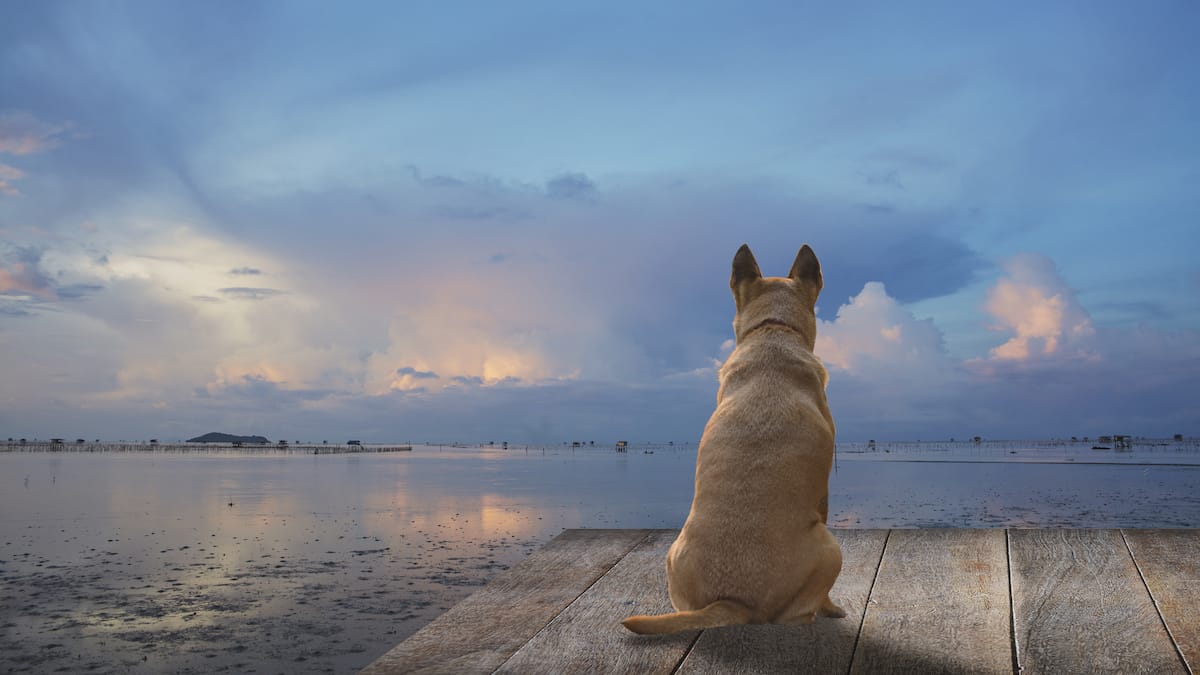
After my first nonreligious parenting book came out, the Minneapolis Star Tribune ran a brief profile on me. A few days later, I received a handwritten letter:
Dear Dale,
I’m sending these booklets to you so that you know God loves you. When you die, you don’t die like a dog. You will go on forever! I’m 74 & received Christ into my life at age 11. I’ve never regretted it for a minute.
Love, & Rejoicing in the Lord Jesus, etc.
Enclosed were a Jack Chick tract and a pamphlet called Your First Six Days in Hell.
Her tidings of comfort and joy resurfaced in my mind when we euthanized our beloved family dog. Goober was 12, hobbled with lipomas, and in pain from arthritis. When an ultrasound revealed that her liver was consumed with tumors, we knew it was time.
My son flew in, and the whole family took our girl to the vet. They had a lovely quiet room set aside for this purpose, with a soft dog bed on the floor and sunlight streaming through the windows. We petted her and talked to her until we all agreed it was time to let her go. The vet who had cared for her for most of her life entered quietly and explained the procedure: Three medications were lined up in an IV tube, ready to be administered in a gapped sequence. First propofol would put her into a deep sleep; the second med would numb all sensations; the third would stop her heart.
As the propofol went into her vein, her eyelids sank quickly, as if overcome by the best possible sleep. The last thing she saw was my 15-year-old daughter, who was three when they met. Three minutes later, without distress, Goobie was gone.
She had died like a dog. And it was the best death I can imagine.
There is perhaps no future more worth contemplating than the certainty of our deaths, yours and mine. So let's contemplate.
Human life is fetishized, extended well beyond any quality that makes it worth living, just because we can. More often than not, we spend our final months and days in continual pain, or lost in the haze of morphine or dementia, immobilized in a bed or chair or sunk in a coma. I watch my mom at 84—blind, confused, immobilized by Parkinson’s and chronic heart failure—as attendants in her assisted living facility pop heads in the door and say Ratchedly, “Medication time!” before dispensing the pills that will keep her in this condition for as many weeks, months, and years as possible. As long as the heart pumps, it’s somehow a victory. As long as we can stave off the complete release from pain, it’s a victory.
No thanks. I want to die like a dog.
Not long after we helped the Goob die gently, a Canadian law allowed an elderly couple, George and Shirley Brickenden, to make the same choice. After 73 years of marriage, both of their hearts were failing, and chronic illnesses had set in with no reasonable hope of remission. They made the arrangements and gathered family around them:
Shortly before 7 p.m., Mrs. Brickenden turned to her husband. “Are you ready?”
“Ready when you are,” he replied.
They walked into their bedroom and lay down together, holding hands. The two doctors, one for each patient, inserted intravenous lines into their arms.
Angela rubbed her mom’s feet. [Pamela] rubbed her dad’s. “They smiled, they looked at each other,” Pamela said. Then Mr. Brickenden looked at his children, standing at the end of the bed.
“I love you all,” he said.
We often treat death as a failure. The Brickendens knew better. They knew their exit from life was coming, and they chose to control the terms. They chose to die like dogs.
May we all be so lucky.
